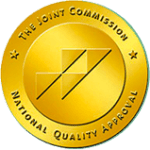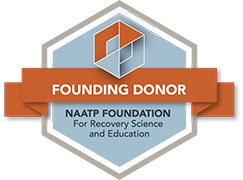What are the Dangers of Complacency?
Complacency is defined by the Cambridge Dictionary as, “a feeling of calm satisfaction with your own abilities or situation that prevents you from trying harder.” We all become complacent from time to time; we stop pushing ourselves to achieve new goals at work, we become a bit too comfortable in our relationship, and we nonetheless start to perceive that our lives can continue going the way they are without any additional effort. As Isaac Newton, a mathematician, physicist, theologian and scientist widely recognized for his work on gravity (amongst many other scientific wonders) once explained, what goes up must surely come down.
In a sense, we let ourselves go – and it’s only natural that after that brief period of abeyance, we’re met with a sudden “shock” factor: our lives become a bit chaotic, more problems suddenly arise out of nowhere, and we’re greeted with this undeniable sense of confusion as to how it all happened in the first place. This is what it means to be human!
Complacency and Addiction Recovery
Even if you’ve been working diligently towards your recovery for quite some time, it’s never the time to get comfortable. In fact, it’s those “in-between” moments of feeling satisfied with ourselves that we usually slip; we become a little “too” confident in our recovery capabilities, and that actually sets us up for heightened vulnerability to relapse and triggers because we’ve let our guard down.
A 2016 study published in the journal The Grounded Theory Review emphasized that those in long-term addiction recovery tend to implement the following in order to stay diligent in their recovery efforts:
- Embracing their experiences
- Moving and living through painful experiences
- Allowing thoughts and feelings to pass
- Connecting with others
- Acting with love and compassion
- And more
However, it is when a person in long-term recovery believes that they know everything there is to know – or that they’ve reached a point in their recovery where they no longer need to try – that relapse becomes of higher concern.
Combatting Complacency with Vigilance
A 2017 article published in the journal Qualitative Social Work sought to explore some of the lived experienced of women in addiction recovery. Some of these women had been in recovery for 1 year, while others had been in active recovery for as long as 30 years. The researchers sought to find out just what constituted as ‘recovery’ to them, a time they struggled to maintain recovery, and how they know they’re in recovery. What they found is that vigilance – or the state of being watchful for potential dangers – pays off in long-term recovery. There were three main types of vigilance that seemed to counteract the effects of complacency for these individuals:
Vigilance through remembering
One participant noted that when she remembers just how unmanageable her life became when alcoholism was involved, the goals that she had maintained in recovery continued to be very salient for her. In fact, many participants even highlighted how important their sobriety date was for them. Doing this enabled them to really get a clear grasp of who they are now compared to who they were in the past, and this distinction really helped them avoid wanting to take steps backwards.
Vigilance through being careful
Individuals noted that in recognizing triggers and being aware of potential relapse, a person can build their vigilance in long-term recovery. Some people expressed the importance of constant attention and monitoring – what the researchers described a “delicate balance”. For some women, certain activities helped them stay active in their recovery. One woman stated, “…I am either reading or I am writing you know, so it really gives me a focus and I think if I didn’t…I [would] start to go off at the loose ends and we don’t know what will happen.”
By recognizing that danger is always present, those in long-term recovery can maintain that careful sense of vigilance that ensure they never reach complacency.
Vigilance through seeking community
Rather than being isolated in recovery, these women found that community held a great deal of weight in terms of maintaining vigilance. By filling their lives with the safety, comfort, and access that comes with building a recovery family, they lessened their risk for relapse – and they made some lifelong friendships along the way. As one individual stated, “If I weren’t doing all of these things, I would be teetering on the edge again, and I think that keeps me solid in AA (Alcoholics Anonymous) and that is how I know I am in recovery today.”
One participant called it “staying plugged in” to recovery, even when she was carrying about her own life at home. Even after completing a formalized treatment program, it is still possible to become lost in recovery – it is through the resources and people around us, however, that keep us moving in the direction we seek to go.
This is the year to change your life from suffering due to the disease of addiction to thriving in the sunlight of the spirit of sobriety. As the world’s first 12-Step treatment center, established in 1939, High Watch Recovery is dedicated to educating patients on 12-Step principles, actions, philosophies, and lifestyles, preparing them to live a happy and healthy sober life after graduating. For information on our continuum of clinical care and our compassionate approach to treatment, call us today: 860.927.3772.








